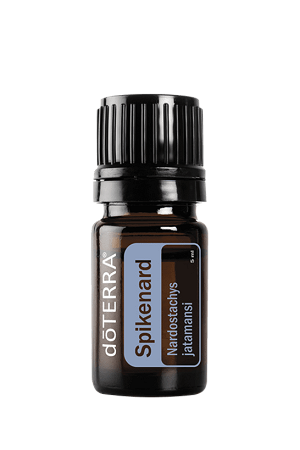Spikenard Spikenard (Nepal)
- Category:
- Location:
- Date:
- Location:
- Nepal
High in the mist-veiled slopes of the Himalayas, where ancient forests whisper secrets to the wind, grows a rare and sacred plant—spikenard. Harvested by hand in the remote hills of Nepal, doTERRA’s Spikenard essential oil carries the earthy soul of its origin. As it is distilled into essential oil, a warm, woody aroma rises—deep, musky, and grounding—like the scent of soil after rain. This is more than an oil; it’s a journey into stillness, a connection to centuries of tradition, and a breath of calm in a chaotic world.

Spikenard Nardostachys jatamansi
Spikenard essential oil cleanses the skin and provides a tranquil, grounding aroma.
Why Nepal?
Spikenard essential oil, also known as nard, is derived from Nardostachys jatamansi, a flowering plant in the Valerian family native to the alpine and sub-alpine regions of the Himalayas in Nepal, China, and India. Thriving in these high-altitude environments with cool temperatures and well-drained soil, it has been valued for centuries in Ayurvedic practices and ceremonial anointing. doTERRA sources its Spikenard oil from Nepal, where wild harvesting supports local communities by providing vital income for harvesters and distillers.
How does it work?
Harvest and Production Process Spikenard grows high in the Himalaya at elevations between 9,800 and 16,400 feet (3,000-5,000 m). The plant grows to about 3 feet (1 m) high and has small, pink, bell-shaped flowers. The dark green essential oil comes from spikenard rhizomes, plant stems that grow underground roots. The harvest season starts in August and ends in November. The harvesting of spikenard raw materials is one of the most challenging jobs in the field during the harvesting season. Harvesters’ gatherers, together with their tents, baskets, and packed food, stayed in the hills for weeks, collecting the raw materials until their baskets were filled. It takes weeks to fill one basket with spikenard raw materials, and coming down from the mountain with a full basket is also difficult. However, this is how the mountain people of this region can earn a living. Spikenard is an endangered plant, so there are regulations on the amount and frequency of harvesting. doTERRA Spikenard oil is legally sourced from Nepal with regulatory oversight by the Nepal Government Department of Forests and Soil Conservation to ensure CITES compliance. All doTERRA Spikenard oil is sourced from distillers and partners who are required to provide CITES certification and permits for regulated oil production and legal exportation. doTERRA understands the importance of its protection and wants to help ensure that this plant can be available for generations to come.
Ethical harvesting methods are used to avoid damage to the plant and its environment. This helps maintain the ecological balance of the high-altitude regions where spikenard grows. After harvest, the spikenard rhizome is cleaned and dried for several days before it is collected in the community. Oil is extracted through steam distillation methods of the dried rhizomes.
doTERRA can provide sustainable income for Spikenard harvesters and distillers. Because many of these harvest areas are remote, it can be difficult for distillers and harvesters to receive the income necessary to support their families. With the doTERRA Co-Impact Sourcing® initiative in Nepal, Spikenard harvesters and distillers can enjoy timely payments from our sourcing partner. Not only does this initiative help the harvesters themselves, but doTERRA also works to help these rural areas with special community projects that aim to improve quality of life.
Sourcing Spikenard - Nepal
Co-Impact Story
Building Supplier Capacity
Together with partners in Nepal, doTERRA has been active in facilitating supply chain improvement and sustainability programs for Spikenard. We worked with our partners to develop manuals on good collection and good manufacturing practices, and implemented trainings on these topics. Additionally, we’ve worked with our partners to create nurseries and demonstration plots to test spikenard cultivation (always in compliance with the Nepalese government and CITES regulations). These supply chain improvement initiatives help to protect and make best use of this beautiful natural resource. The sourcing story of Spikenard is unique, and its oil is known for its unique chemistry in the world.
CITES Certification
doTERRA works in strict compliance with CITES (Convention on International Trade in Endangered Species of Wild Fauna and Flora). CITES provides the international agreement between governments to ensure that international trade in specimens of wild animals and plants does not threaten their survival. doTERRA voluntarily, systematically, and enthusiastically complies with CITES recommendations and restrictions.
Earthquake Recovery and Community Support— A Healing Hands Story
It’s been several years since the devastating earthquake in Nepal in 2015, yet many people are still working to rebuild their lives and recover. As of 2019, the doTERRA Healing Hands Foundation has donated nearly two million for earthquake relief aid and community-benefitting social impact projects in Nepal.
In partnership with CHOICE Humanitarian, as well as local government and communities, Healing Hands has supported numerous projects in Wintergreen and Spikenard oil-producing communities. These projects include the construction of Sanskriti Sadan Secondary School (500 students), Sharada Secondary School (700 students), and Gokul Ganga Higher Secondary School (700 students); rebuilding more than 50 earthquake-damaged homes; the expansion of the primary hospital in Palung, Makwanpur (serving over 100,000 people); construction of a new hospital in Rasnalu, Ramechhap; reconstruction of the Agara Health Post; construction of the Veterinary and Agricultural Lab facility as part of the Janakalyan Secondary School in Makwanpur; and installing a water supply system that provides potable water for 325 families and schools in Thaha, one of the country’s poorest communities.
Additionally, in partnership with Days for Girls, Healing Hands has funded the distribution of more than 30,000 feminine hygiene kits and accompanying education to adolescent girls throughout Nepal.


Comments
0 CommentsAdd to the conversation
Please login to comment
LoginWas this article helpful?